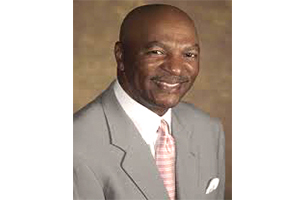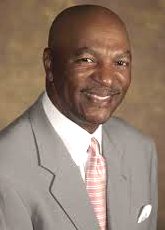 Pete McDaniel
Pete McDaniel
Contributing Editor
African American Golfer’s Digest
Blog: July 2013
“From The Mouth of Babes”
Good news: Harold Varner III made the U.S. Open field as an alternate. Tee time 9:01 Thursday.
The past converged with the future in two chocolate cities during the weekend before the National Open being contested at prestigious Merion Golf Club outside Philadelphia, the city of freedom.
The irony was unmistakable as the game celebrated the proud heritage of Langston Golf Course in D.C., showcased the new wave of African American competitors in Atlanta and prepared for a national championship with a most eclectic field including hopefuls from around the world and one (Tiger Woods) of African American heritage.
Liberation should make us all feel better. Let us free! If only it were that simple.
An open of worldwide sporting significance in what remains pretty much a closed shop for African Americans and other minorities would be particularly upsetting if it were not the status quo. Emblematic of the game itself, the U.S. Open has only had one other American face of color (there have been South Africans and dark-skinned players of other nationalities in the field) among its contestants since Adrian Stills joined Tiger in the field for the 1998 U.S. Open at the Olympic Club in San Francisco. That was Joseph Bramlett in the 2010 national championship at Pebble Beach.
Perhaps it’s a numbers game. A handful of blacks attempted to qualify for the Open. A couple came within a stroke or two. Perhaps if more had tried one or two might have been successful. Seems like we’re always counting heads and pennies trying to make a dollar out of 15 cents. That’s why we must continue to expand the base so that the penthouse will be secure enough for more of us. That’s also why we must note the relevance of the events this past weekend.
First, a blast from the past. In celebration of Langston GC and the Wake Robin Golf Club (the nation’s oldest women’s golf club) being inducted into the National Black Golf Hall of Fame earlier this year, an estimated crowd of more than 300 golf enthusiasts listened to testimonials, history lessons and some entertaining storytelling by several of the game’s black legends.
Intermittent showers greeted the crowd, but by the end of the event, a brilliant sunshine symbolized a day of dazzling enlightenment. Presented by Golf Course Specialists, which manages Langston and three other public courses in the District, the event featured an opening shot by Congresswoman Eleanor Holmes Norton, who detailed the political struggle involved in providing federal funding for the course, which since its opening day in 1939 has been the centerpiece of Black golf.
A group of historians, including Dr. Calvin Sinnette (author of Forbidden Fairways), Dr. Jeffrey Sammons, history professor at NYU, Susan Wasserman (of the USGA Museum) and yours truly spoke on various subjects pertaining to Langston and the Wake Robins. The highlight came toward the end of the festivities when legends Lee Elder, Rafe Botts, James Black and Calvin Peete took the stage. Chuck Thorpe, whom I hadn’t seen in years, was also there but didn’t participate in the dialogue.
All of them expressed close ties with Langston. Botts attended high school next door and learned how to play at Langston. A most articulate gentleman, he is noteworthy in our history as the second African American to receive a tournament player’s card from the PGA Tour, immediately behind Charlie Sifford. The latter couldn’t be there due to health issues but he was reached by cell phone so the crowd could sing “happy birthday’’ to him. Dr. Sifford turned 91 on June 2.
Elder and his first wife, Rose, ran the concessions at Langston for 10 years at the height of his career on Tour. His recall is amazing for a man who has suffered through his share of health issues, as well. They are our national treasures and we should find a way to utilize them (with compensation, of course) in the preparation of the next generation of tour players, male and female.
Many of generation next were on display at Summer Grove GC in the Atlanta bedroom community of Noonan this past weekend battling for prize money in the Advocates Pro Tour event. The Advocates are a group of guys who have put their money where their collective mouth is. By sponsoring several tournaments each year, they are providing our aspiring pros meaningful competition. The PGA Tour recently chipped in $100,000 over five years—a step in the right direction.
Old heads like Jim Dent, Bobby Stroble, Adrian Stills, Jerry Bruner, Tom Woodard, Johnny Allen and Jesse Allen compete in the senior (and sometimes the regular) division, providing a level of mentoring to young guys like Joshua and Jeremiah Wooding, Vincent Johnson, Tim O’Neal, Jim Dent Jr., Kevin Hall, Kevin Lyles, Harold Varner and Marcus Manley, winner of the season-opening event at Tampa’s Rogers Park. Jeremy shot a 66 to take first-place money of $7,500 in the rain-shortened event at Summer Grove. O’Neal, Hall and Josh Wooding were a shot back.
During the rain delay I got a chance to talk to the elder Dent and young Lyles. Dent dispensed advice on a fair course set-up that helps with marketing the tour and its players. Apparently the pin positions were a little suspect. Sound advice from the sage.
Lyles epitomizes the young, struggling pro trying to juggle a career and life’s essentials on a shoestring budget of dollar menus and duct tape. Sponsor-less youngsters like him are sponges soaking up the knowledge of veterans like O’Neal, a mini-tourist who has had a couple of near-misses at Q School.
“I had a great pairing yesterday (with Kevin Hall and Tim O’Neal),’’ says Lyles. “I love playing with Tim because I learn so much just from watching him. He’s been where I’m trying to get to and was close to making it all the way. He always helps me.’’
O’Neal reflects the spirit of the black golf tours back in the day when players traveled together, practiced together, hustled together and struggled together. It was a shared experience where there was strength in numbers. That spirit of togetherness assisted those who made it to the big leagues. Lyles believes it can be very beneficial to his generation, as well.
“Following the example of the Asians, Swedes and others, what if we had a group of say 10 (Black) players with the most potential traveling together, supporting each other under the same sponsorship?’’ says Lyles. “I think it would make a big difference. I know it would for me.’’
* * * *
Pete McDaniel is a veteran golf writer and best-selling author. His blogs and books are available at petemcdaniel.com
Comments on this topic may be emailed directly to Pete at: gdmcd@aol.com




